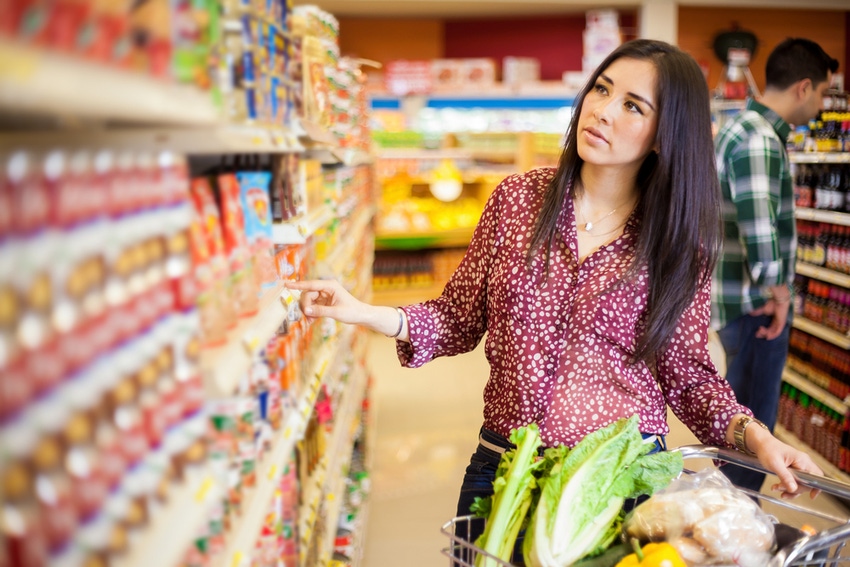Microsoft Azure Dives Deeper Into Retail with Kroger
It's the latest in relationships forged between cloud providers and large brick-and-mortar chains.
January 8, 2019

Microsoft’s expanded partnership with grocery chain Kroger to leverage the software giant’s Azure cloud highlights the ongoing push by large cloud providers to bring their services to brick-and-mortar businesses. The goal is to improve the customer experience.
The companies just unveiled plans to leverage technology developed by Kroger and powered by Azure to create a highly connected experience for in-store customers and also to market their retail-as-a-service (RaaS) product to others in the industry. Microsoft CEO Satya Nadella said the two companies “will redefine the shopping experience for millions of customers at both Kroger and other retailers around the world, setting a new standard for innovation in the industry.”
Kroger hooked up with Microsoft in late 2017 when officials announced they would leverage the cloud platforms from not only Microsoft, but also Google, for the grocer’s e-commerce and digital workloads, purposely avoiding the world’s largest cloud provider, Amazon Web Services (AWS). It’s not surprising given that only months before, Amazon announced it was buying Whole Foods for $13.7 billion. Other companies like Target and Walmart also are aligning with cloud providers to handle their workloads and data.
The shift toward pushing cloud services to large traditional store chains to enhance the retail experience is many years in the making, starting with the launch of Amazon as an online bookseller, according to Charles King, principal analyst with Pund-IT. At the time, “Amazon was one of the few companies that understood the natural evolution of retail if a company could leverage online resources,” King told Channel Futures.
The next natural step was shifting from online sales to the cloud, and others like Microsoft, Google and IBM likewise followed suit.

Pund-IT’s Charles King
“After Amazon went into Whole Foods, it started developing services and marketing them to other companies,” the analyst said, adding that Amazon used the services it was offering at Whole Foods “and told other companies, ‘We can do that for you, too.’”
Microsoft and other providers are now looking to offer cloud services to other brick-and-mortar businesses that will improve the customer experience and back-end operations. By taking a more agnostic approach than Amazon with its Whole Foods acquisition and playing to its long-gained strengths in the enterprise, “Microsoft can present itself as more valuable and less threatening than Amazon is,” King said.
Kroger is taking a smart technology system developed in-house, powered by Azure and connected to internet-of-things (IoT) sensors in two pilot stores in Redmond, Washington, and Monroe, Ohio. Kroger is using Azure to store and process data generated in the stores as well as on the company’s “smart shelves,” and a mobile app to drive innovation around its EDGE (Enhanced Display for Grocery Environment) Shelf system that uses digital displays for information like prices, promotions and nutrition rather than paper tags. Using Azure AI services, EDGE Shelf will be able to connect with Kroger’s “Scan, Bag, Go” service to improve the customer experience, officials said.
For employees, another solution reduces the time needed to complete curbside pickup orders, and Azure-powered video analytics helps them find and address out-of-stock issues. Kroger officials also want to create new revenue streams by …
… selling digital-advertising space to the various brands in the store. In addition, Kroger is looking to sell an Azure-powered commercial RaaS solution – developed jointly with Microsoft and which will offer such capabilities as collecting insights into customer behavior, improving employee productivity and drive hyper-personalization of the in-store customer experience – to other retailers.
Future commercial products will include Scan, Bag, Go, a sensor network, Virtual Storage Manager, and connectors linking in the in-store environment with corporate systems point-of-sale devices and inventory management. The first of the RaaS product offerings, including EDGE Shelf, personalized ads and guided shopping, will be on display in Microsoft’s booth at the NRF 2019 show next week in New York City.
Pund-IT’s King said he expects to see cloud providers continuing to pursue business partnerships like the one between Microsoft and Kroger, in part because despite the attention, online sales account for only about 10 percent of all retail sales. There are still a lot of people going into stores to make purchases, which means it is a wide-open market for cloud providers, he said.
“There’s still a lot of money being spent in grocery stores,” King said.
And a lot is being spent with cloud service providers. According to analysts with the Synergy Research Group, spending on cloud infrastructure services grew 45 percent in the third quarter of 2018, with providers like Microsoft, Google and Alibaba seeing gains. AWS was able to keep its dominant position with 34 percent market share.
About the Author(s)
You May Also Like


